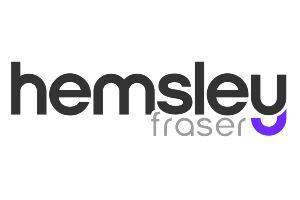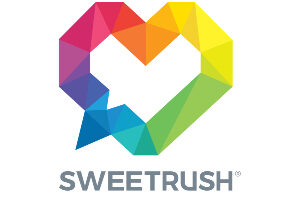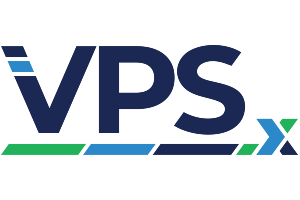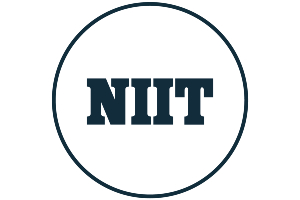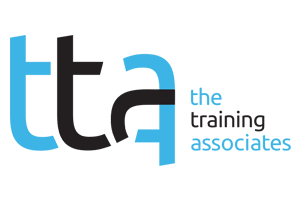Organizations face the dual challenge of maximizing learning engagement while driving innovation and growth. Additionally, they grapple with the ongoing necessity of ensuring their workforce remains adept with the requisite knowledge and skills to stay competitive. Managed learning services (MLS) have surfaced as a strategic solution, presenting a comprehensive approach to learning management that allows businesses to reallocate resources toward core competencies and fresh initiatives.
Outsourcing MLS can serve as a powerful tool in aiding organizations to optimize learner engagement, cultivate agility and stimulate innovation, ultimately driving success in a rapidly evolving market landscape. In turn, organizations can focus on their core competencies.
Advantages of Managed Learning Services
Expertise and Support
MLS providers bring specialized expertise and experience, ensuring high-quality learning solutions tailored to specific organizational needs. From learning strategies to instructional design to training delivery and supporting technologies, MLS vendors offer comprehensive assistance throughout the learning lifecycle.
Scalability and Flexibility
MLS allows organizations to easily scale their learning initiatives up or down as needed, accommodating fluctuating demand, seasonal variations or sudden business changes. This scalability ensures efficient resource allocation, maximizing the return on investment in learning.
Data-Driven Insights
MLS platforms capture extensive data on learner behavior, engagement levels, and performance metrics. By analyzing this data, organizations gain valuable insights into the effectiveness of their training programs, enabling continuous improvement in content, delivery methods, and learning strategies.
The Strategic Shift Toward Managed Learning Services
Managed learning services encompass a range of solutions designed to support organizations in managing their entire learning ecosystem. Partnering with a premier MLS provider allows businesses to streamline learning processes, from content development and delivery to administration and analytics. This strategic shift enables companies to focus on driving innovation, growth initiatives, and core business objectives while maintaining an effective learning infrastructure.
Maximizing Learner Engagement, Enhancing Agility and Optimizing Costs
Maximizing learner engagement, agility, and cost-effectiveness is crucial for successful learning initiatives. MLS providers use innovative techniques like multimedia elements, gamification, and social learning features to create personalized and interactive learning experiences, improving retention and training outcomes. Agility is vital for competitiveness in today’s dynamic market. MLS offers flexible learning solutions that can be quickly deployed and adjusted to meet organizational needs, whether it’s onboarding new employees, upskilling existing staff, or adapting to emerging training requirements. Additionally, MLS shifts the cost burden from traditional upfront investments to a scalable and cost-effective model, where organizations pay based on usage. By outsourcing learning management to specialized providers like Infopro Learning, businesses can reduce overhead costs, avoid the need for in-house expertise, and benefit from economies of scale.
Leveraging MLS for Innovation
Outsourcing MLS to a learning vendor enables organizations to reclaim valuable time and resources that would otherwise be spent managing learning processes internally. With the operational aspects of learning management handled externally, businesses can refocus their efforts on exploring new market opportunities, developing innovative products and services, and driving growth initiatives. Moreover, by entrusting MLS to specialized vendors, businesses can tap into the vendor’s expertise and experience in learning and development, benefiting from innovative approaches, emerging technologies, and best practices that may not be readily available in-house.
The Impact of AI on Managed Learning Services
Artificial Intelligence (AI) is revolutionizing Managed Learning Services by enhancing personalization, efficiency, and engagement. AI analyzes learner behavior and performance data to create tailored learning paths and recommend relevant content, improving engagement and knowledge retention. AI-driven analytics forecast learning outcomes and identify skill gaps, enabling proactive training adjustments and ensuring the workforce remains equipped with necessary skills. Additionally, AI streamlines content creation and curation by generating up-to-date, relevant learning materials based on trends and learner feedback, saving time and resources. AI-powered tools like chatbots provide real-time support and feedback, creating a more interactive and responsive learning environment. Furthermore, AI automates administrative tasks such as scheduling and progress tracking, reducing the burden on organizations and allowing them to focus on strategic initiatives. By integrating AI, MLS can deliver more effective, efficient, and personalized training solutions, driving better outcomes and keeping organizations competitive in a rapidly evolving market.
Case Study Examples
Working With a Prominent Consulting Firm
A consulting firm sought job aids and support materials to bolster user adoption of their new ERP system. We collaborated closely with the firm’s internal teams, swiftly producing over 20 PDFs covering various ERP topics, including performance reviews, expense reports, timesheets and purchase orders. These materials were pivotal in expediting the system’s adoption, designed for easy accessibility through the organization’s learning management system (LMS) and crafted with visual aids and detailed instructions to reinforce core training concepts.
Moreover, these PDFs were structured for easy modification, ensuring prompt updates as needed. The resulting resources were tailored for on-the-job use by managers, promoting high engagement levels evidenced by frequent utilization. They significantly contributed to increased user adoption, offering supplemental guidance that fostered greater comfort and proficiency among managers. These materials also played a key role in enhancing managers’ comprehension and application of the ERP software through clear explanations, visual aids and real-world examples, aligning with the firm’s objectives and delivering tangible benefits to its workforce.
Collaborating With a Non-Profit Organization
A prominent non-profit organization faced the challenge of fostering collaboration among its seven diverse teams. Their goal was to facilitate seamless knowledge sharing and collaboration across these teams, create a dynamic learning environment to enhance training effectiveness and advocacy efforts, and empower users to interact, share insights and leverage collective expertise for better health outcomes.
In response, we designed a tailored collaborative learning platform, integrating social elements like posts, likes, comments and community creation to facilitate seamless communication and engagement. This strategic approach not only enhanced the effectiveness of training programs but also enabled global accessibility to content, empowering users to engage in peer interactions, share case studies, receive feedback and expand their professional networks.
The program’s success exceeded expectations, with engagement levels doubling compared to the previous year, the program reaching over 50 new jurisdictions, tripling the capacity for skills sharing and resource sharing and attracting over 250 voluntary participants, showcasing its broad appeal and effectiveness in fostering collaboration and driving positive outcomes.
Conclusion
The rapid evolution of artificial intelligence (AI) and the quest to become a high-impact modern learning organization are driving changes in how we operate at an accelerated pace. Managed learning services offer a strategic approach to learning and development, enabling organizations to maximize learner engagement, foster agility and promote innovation. By outsourcing MLS, businesses can optimize their learning processes while refocusing resources on core competencies and new initiatives, driving success and growth in today’s competitive business landscape.


